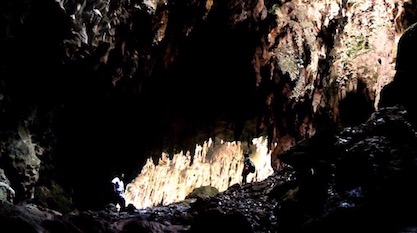 Human Origins
Human Origins
 Paleontology
Paleontology
Paleontologist Günter Bechly: “No Well-Established Tree of Fossil Humans”


On a new ID the Future episode, Discovery Institute paleontologist Günter Bechly talked with host Andrew McDiarmid about recent fossil finds that scramble yet again what scientists thought they knew about human origins. They discuss the discovery of remains of Homo luzonensis on Luzon Island in the Philippines, hailed as a new human species and dated to between 50,000 and 67,000 years old.
A fascinating question is how the creatures got there, considering that Luzon is not now and was not then connected to the mainland. A hypothesis that they had the skill and intelligence to sail runs up against, among other problems, the fact that the oldest preserved boat, a canoe, is just 8,000 years old. It’s another reminder of what a “mess” (Dr. Bechly’s characterization) the fossil record is. Bechly explains:
There is no well-established tree of fossil humans, contrary to the impression you might get if you look at many textbooks. And that’s mostly because there is a very chaotic rather than an orderly distribution of these primitive and modern characters in various fossil humans. So the character pattern does not align well with a nested hierarchy.
Meaning that it does not fit, either, with Darwinian expectations, though evolutionists seek to keep that fact decorously veiled from the public. Download the podcast or listen to here. See also, “New Fossil Human Species Thwarts Core Darwinian Predictions.”
Photo: Callao Cave on Luzon Island where the remains of Homo luzonensis were uncovered, by Ervin Malicdem [CC BY-SA 4.0], via Wikimedia Commons.
